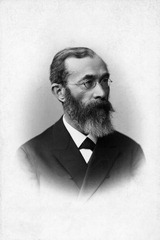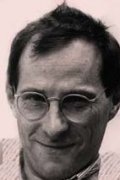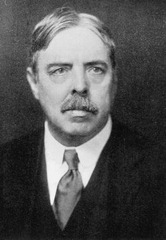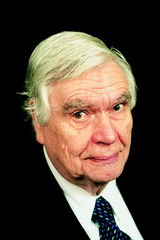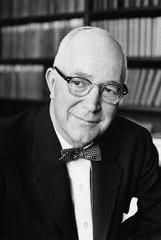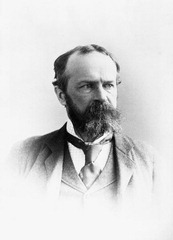 James
James 
 James, William
James, William 
 Own illness
Own illness 
Own illness. For some of the figures on EPoCH, a period of illness provided an opportunity to experience at first hand a subject they then went on to study, but also provided a time to begin thinking about the nature of psychology, to travel as part of their recuperation, or to reconsider the direction their life was taking. For instance, Jung's widely reported psychotic breakdown (along with his work on more severe cases) may explain the different focus of his work compared to Freud's. William James was seemingly obsessed with his own illness, while Darwin was also often ill and thus spent time being introverted and depressed and 'thinking'. Written by: Course Team

 Emotion
Emotion 
Emotion. The term 'emotion' originates from the Latin emovere, which carries the sense of movement and excitation. This captures the activating quality emotions can have upon people. Although the term is widely used within psychology, it is not easily defined. Nor it is easily studied using most of the conventional methodological tools of experimental psychology. Emotions involve the experience of various feelings, though the term 'emotion' is usually only employed in the case of a fairly intense feeling, carrying a strong personal significance, such as joy or sadness.\nThe powerful motivating force of emotions has been of particular interest to both psychoanalysts and humanistic psychologists, with the former tending to focus more on the unconscious aspects of emotion, both positive and negative, and the latter on the possibilities for conscious experience of 'positive' emotions. Arguably, much of human activity can be seen in terms of a search to experience positive emotional states, and escape from negative emotions. It is perhaps interesting therefore to reflect on how little most branches of academic psychology over the last century have actually studied this topic.

 Introspection
Introspection 
Introspection. Essentially, this method involves attempting to examine one's own psychological experiences (i.e. the contents and processes of the conscious mind) and report back what is found. This was one of the main methods of the early pioneers of psychology, such as William James, much of whose influential writings of psychology come from relatively informal and unstructured introspectionist reports of his own experiences. In a much more structured and formal way, Wilhelm Wundt established a psychological laboratory in Germany, where he tried to break down sensory experience into its component parts based on introspectionist data from a number of participants. In terms of the history of psychology, Wundt's failure to achieve inter-observer reliability with these types of data led to the rise of Behaviourism with researchers such as Watson rejecting mental data of all kinds as 'unscientific', and limiting psychology to the study of externally-observable behaviour. Since then, introspectionist data have more recently again found a place in psychology (though it's fair to say that introspection is still shunned by many psychological perspectives). In cognitive psychology, although the main focus is usually on experimental data, some cognitive psychologists have got people to 'talk through' their experiences when engaged in cognitive activities such as problem solving, with the resulting 'verbal protocols' seen as a useful complement to experimental data. Introspectionist reports of individual experience are an important part of humanistic and transpersonal psychology (e.g. in studying altered states of consciousness). These type of data are particularly important in transpersonal psychology, partly as a result of the way this perspective has been influenced by eastern philosophies/psychologies such as Buddhism, which have always used introspection as their primary method.

 Influences on
Influences on 
 His illness allowed him time to rest and seek treatment in Europe as well as to experience clinical psychological states of which he later wrote. It also allowed him time to become extremely well read, in literature in French, English and German.
His illness allowed him time to rest and seek treatment in Europe as well as to experience clinical psychological states of which he later wrote. It also allowed him time to become extremely well read, in literature in French, English and German. 
 William James was born in New York on January 11, 1842 and was the oldest of five children (his brot her Henry, the second born, also achieved fame, as a novelist).
William James was born in New York on January 11, 1842 and was the oldest of five children (his brot her Henry, the second born, also achieved fame, as a novelist). 
 Although James never worked in a laboratory himself, he helped to establish psychology as a laboratory science based on the experimental method. James was also strongly influenced by Darwin's ideas on evolution.
Although James never worked in a laboratory himself, he helped to establish psychology as a laboratory science based on the experimental method. James was also strongly influenced by Darwin's ideas on evolution. 
 By the end of his life (at 68 years), James had become world-famous as a philosopher and psychologist who was noted for his open-mindedness to new ideas, including psychoanalysis and who had expanded the content of what was considered to be consciousness.
By the end of his life (at 68 years), James had become world-famous as a philosopher and psychologist who was noted for his open-mindedness to new ideas, including psychoanalysis and who had expanded the content of what was considered to be consciousness. 
 In the year that he married James also began work on his first book that would be published 12 years later. This was the Principles of Psychology (1890). It was written in a very engaging style and established him as one of the most influential thinkers of his time.
In the year that he married James also began work on his first book that would be published 12 years later. This was the Principles of Psychology (1890). It was written in a very engaging style and established him as one of the most influential thinkers of his time. 
 James also applied his empirical methods of investigation to philosophical and religious issues such as the existence of God, the immortality of the soul, free will, and ethical values. He is also well known for his later philosophical work Pragmatism: A New Name for Old Ways of Thinking (1907).
James also applied his empirical methods of investigation to philosophical and religious issues such as the existence of God, the immortality of the soul, free will, and ethical values. He is also well known for his later philosophical work Pragmatism: A New Name for Old Ways of Thinking (1907). 
 The James' children had an unusual upbringing in that their father used his independent income to al low him to devote time to his children and to take them travelling around Europe.
The James' children had an unusual upbringing in that their father used his independent income to al low him to devote time to his children and to take them travelling around Europe. 
 In Principles of Psychology James discusses his ideas about identity. However, he also made contribu tions to other areas, including the study of memory, child development, emotion and perception as well as emphasising that experience is the source of knowledge.
In Principles of Psychology James discusses his ideas about identity. However, he also made contribu tions to other areas, including the study of memory, child development, emotion and perception as well as emphasising that experience is the source of knowledge. 
 James' marriage in 1878 seems to have helped his health and focussed him on teaching and writing in anatomy, philosophy, physiology and psychology. It was a time when academics were more frequently polymaths (people who have much and varied learning) than can be the case now with the expansion of academic disciplines.
James' marriage in 1878 seems to have helped his health and focussed him on teaching and writing in anatomy, philosophy, physiology and psychology. It was a time when academics were more frequently polymaths (people who have much and varied learning) than can be the case now with the expansion of academic disciplines. 
 Author: Course Team
Author: Course Team 
 James wanted psychology to be seen as a natural science that focussed on experimental physiology and biology, rather than being centred only on introspectionism which had dominated philosophical psychology since the writings of John Locke and David Hume.
James wanted psychology to be seen as a natural science that focussed on experimental physiology and biology, rather than being centred only on introspectionism which had dominated philosophical psychology since the writings of John Locke and David Hume. 
 This was based on the work of the American logician C. S. Peirce and suggested that the value and significance of ideas is not determined by their origins, but by their possible consequences. If ideas have no consequences, they are meaningless.
This was based on the work of the American logician C. S. Peirce and suggested that the value and significance of ideas is not determined by their origins, but by their possible consequences. If ideas have no consequences, they are meaningless. 
 James also attended private schools in the United States and Europe, Harvard University, and the Har vard University Medical School. He received a medical degree in 1869 - this was a period before psychology degrees were available.
James also attended private schools in the United States and Europe, Harvard University, and the Har vard University Medical School. He received a medical degree in 1869 - this was a period before psychology degrees were available. 
 Principles of Psychology was 1400 pages long and in 1892 James revised it into the 'Briefer version' which has been more widely read. After this, he concentrated mainly on his philosophical work.
Principles of Psychology was 1400 pages long and in 1892 James revised it into the 'Briefer version' which has been more widely read. After this, he concentrated mainly on his philosophical work. 
 Principles of Psychology advanced the idea of functionalism in psychology (which stressed that mind and behaviour should be analysed by studying their functions or utility rather than their content).
Principles of Psychology advanced the idea of functionalism in psychology (which stressed that mind and behaviour should be analysed by studying their functions or utility rather than their content). 
 James argued that the method used by scientists to define their terms and to test their hypotheses w as meaningful, because they made predictions (by developing hypotheses). According to James's pragmatism, truth is that which works. Hypotheses can be considered true if the predicted events take place.
James argued that the method used by scientists to define their terms and to test their hypotheses w as meaningful, because they made predictions (by developing hypotheses). According to James's pragmatism, truth is that which works. Hypotheses can be considered true if the predicted events take place. 
 He retired when he was 65 (in 1907) and then gave successful lectures at Columbia University and the University of Oxford. James died in Chocorua, New Hampshire, USA on August 26, 1910.
He retired when he was 65 (in 1907) and then gave successful lectures at Columbia University and the University of Oxford. James died in Chocorua, New Hampshire, USA on August 26, 1910. 
 James was often acutely depressed and was ill for three years before becoming an instructor at Harva rd in physiology in 1872 (when he was 30) and in psychology in 1875.
James was often acutely depressed and was ill for three years before becoming an instructor at Harva rd in physiology in 1872 (when he was 30) and in psychology in 1875. 
Top







